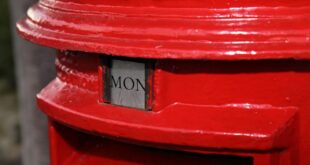West Ham have had an incredible start to this season, and their fans should pause this international break to take in the scale of their club’s achievements.
By whichever metric you choose to use, this has already been a spectacular season for West Ham United. In the Premier League, with more than a quarter of the season played, they sit in third place in the table, unbeaten away from home and having won their last four successive matches. In the Carabao Cup, they’ve already knocked out both Manchester United and Manchester City, keeping clean sheets on both occasions, and next face Spurs in the quarter-finals and will consider themselves favourites, while in Europe their place in the knockout stages of the Europa League is already all but mathematically confirmed, with two matches still to play.
Should we still be surprised by this? After all, West Ham finished sixth in the Premier League last season and would likely have qualified for the Champions League had they not had a wobble towards the end of the season which saw them only win three of their last eight matches. But even now, after they scored eight goals in their first two league matches of this season, and wins against Leicester City, Liverpool, Manchester United and Manchester City, their position near the top of the Premier League table is still being treated as some sort of freak occurrence which defies logical explanation. A little piece of the supernatural in the middle of a normally financially stratified league table.
Behind the scenes, the make-up of the club is starting to change somewhat. Czech billionaire Daniel Kretinsky has now completed a purchase of 27% of the shareholding in the club, and will be taking a place on the board of directors, alongside his colleague Pavel Horsky. Kretinsky, unlike a lot of owners who’ve got involved in Premier League football clubs in recent years, does have prior football experience. He’s already the president of Sparta Prague, the most successful football club in Czechia, and this sale is now understood to make him the second biggest shareholder in the club after David Sullivan. In other words, the iron grip of GSB, whose ownership of the club has not been especially popular with fans of the club, is starting to loosen.
There’s no reason not to believe that Kretinsky isn’t the real deal. He has bought stakes in German and French supermarkets, American department stores, Foot Locker, Royal Mail and Sainsbury’s. but likelihood of huge financial splurges remains slight, at least in the near future. But this doesn’t preclude the possibility of spending a little in the January transfer window, should the right players become available. The one criticism that can be levelled at West Ham’s squad at the moment is that it lacks a little depth, but this criticism can be addressed, and it is likely that they will be able to add players should they need to during the January transfer window.
The injury to Angelo Ogbonna, who has been superb this season, is a case in point. And arguably even more importantly, the pressure to sell Declan Rice, who’s been one of the dynamos around which their recent successes have been built, will also likely reduce. But the relatively thin squad does leave potential issues for the next few weeks. When West Ham’s players return from this international break, they will travel to Wolves for the first of 13 games in 42 days, a frantic schedule even before the Christmas and New Year rush.
Considering that players across the Premier League have been showing significant signs of wear and tear this season, quite probably because of the hectic schedule brought about over the last year and a half by the pandemic, the likelihood of further injuries is going to grow. West Ham have already lost Ogbonna to a cruciate ligament injury which may keep him out for the rest of the season, and they probably can’t afford to lose anyone else without reinforcements coming in to replace them.
West Ham are even in a strong position with regard to their manager. David Moyes has had his ups and downs throughout his managerial career – and no, it doesn’t mean that the earlier, less successful spells that he had at Manchester United, Real Sociedad and Sunderland should be re-evaluated – but his age and profile mean that unlike, say, Graham Potter at Brighton, Moyes is unlikely to find himself being bigged up for every managerial vacancy that does come along, and that lack of speculation should be good for the team’s cohesion.
It has been inevitable that talk has already started about West Ham’s next target, which might be to break into the Champions League. Is this achievable? Well, the league table certainly seems to suggest that it is, but there are obvious pitfalls, not least the fact that, for all the flaws that they have shown in recent weeks, the other sides at or near the top of the Premier League at the moment are exceptional. In football these days, there is a tendency to expect perpetual improvement from every club, even though we all know that this is impossible, in a practical sense.
On the one hand, it might be a disappointment for West Ham supporters, should they not quite reach the peaks that they’re hoping for after another bright start to the season. But on the other, they finished sixth last season and at present seem at least as likely as not to repeat that. Football’s drive towards perpetual improvement often has a tendency to leave supporters perpetually on the point of disappointment, but perhaps this break is a good opportunity for them to take a step back and wallow in the transformation that has already happened over the last couple of seasons.



